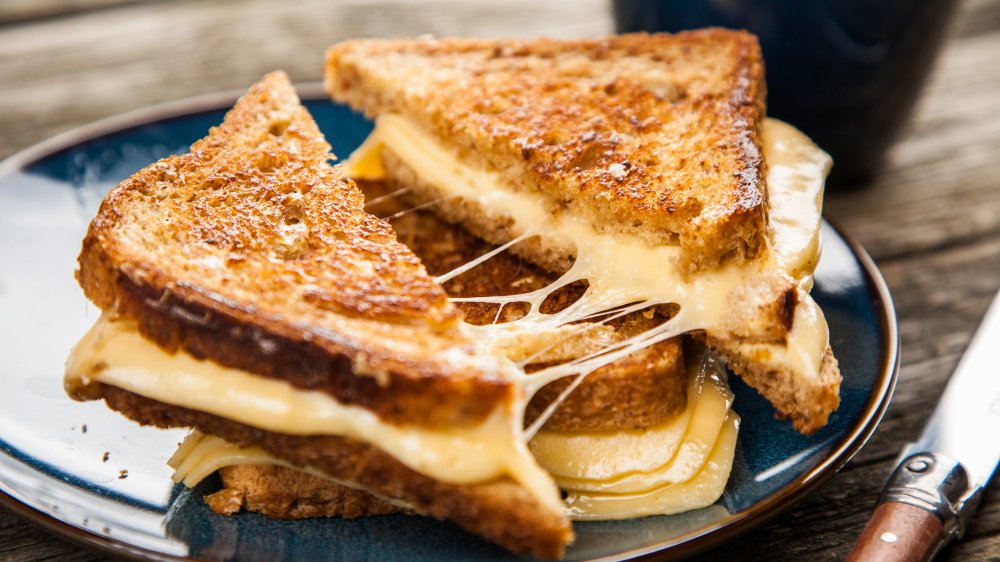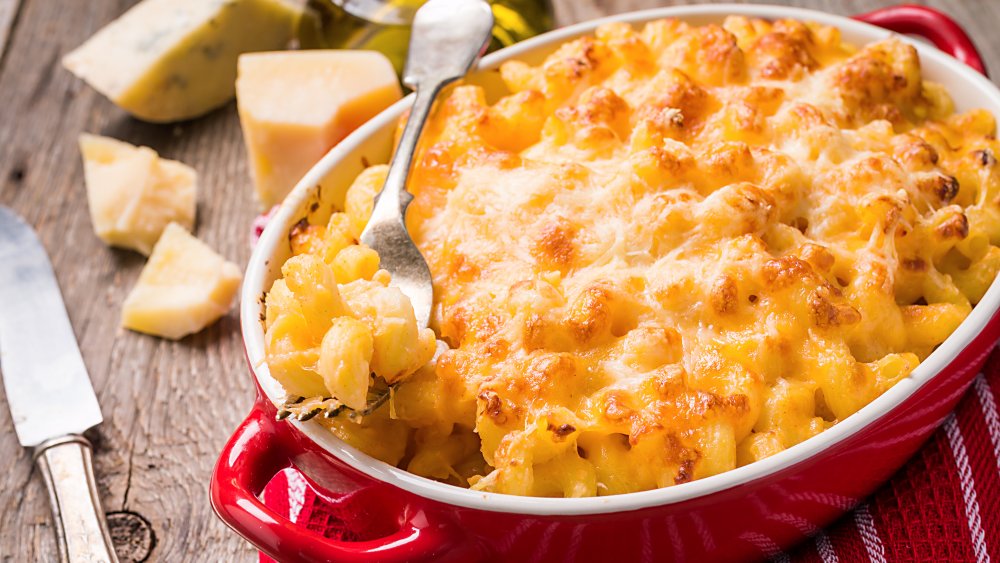The Surprising Reason You Shouldn't Eat Too Much Cheddar Cheese
There's no denying the appeal of cheddar cheese. It's fantastic on a burger, in a grilled cheese sandwich, as macaroni and cheese, in nachos — we could go on. The point is that cheddar cheese is an American favorite, like apple pie (it's great on that, too, by the way). According to the USDA, Americans eat around 15 pounds of American Type (cheddar and jack) cheese per person per year, with each person averaging 37 total pounds of tangy, savory, ooey-gooey cheeses annually (via Mashable).
Cheddar, however, packs a little something extra that may cause you to think twice when grabbing that extra slice. Salt. Quite a bit of it, actually. When comparing cheeses side by side, it's been found that some varieties of cheddar had more salt than seawater, averaging out around .52 grams of sodium per matchbook-size serving. According to Eat This Much, one slice of cheddar cheese contains 150 milligrams of sodium. But is that a lot of sodium, really? And why should we care? Cheddar is good!
Why the amount of sodium in cheddar cheese is important
Before we get called out for picking on cheddar, there are certainly other cheeses that have a higher sodium content. Roquefort, feta, and Parmesan all integrate more salt than cheddar during their manufacturing, according to Wiley, but those cheeses are not typically used in the same quantities that we use cheddar. If we sprinkled cheddar like we do cheeses such as Parmesan, the sodium count wouldn't affect us as much.
The government's Dietary Guidelines for Americans recommends that Americans consume less than 2,300 milligrams of sodium per day. The average American, however, currently consumes around 3,400 milligrams. Eating too much sodium can lead to high blood pressure, heart disease, or stroke (via the Centers for Disease Control and Prevention). Sodium counts can add up quickly, too, especially when you may be sprinkling cheddar over scrambled eggs, adding a slice of cheddar to your lunch sandwich, and baking a potato and cheddar casserole for dinner. If you're interested in lower-sodium alternatives which can be used in similar quantities to cheddar, try your recipe with gruyere, or Monterey, or Swiss (via How Stuff Works).

